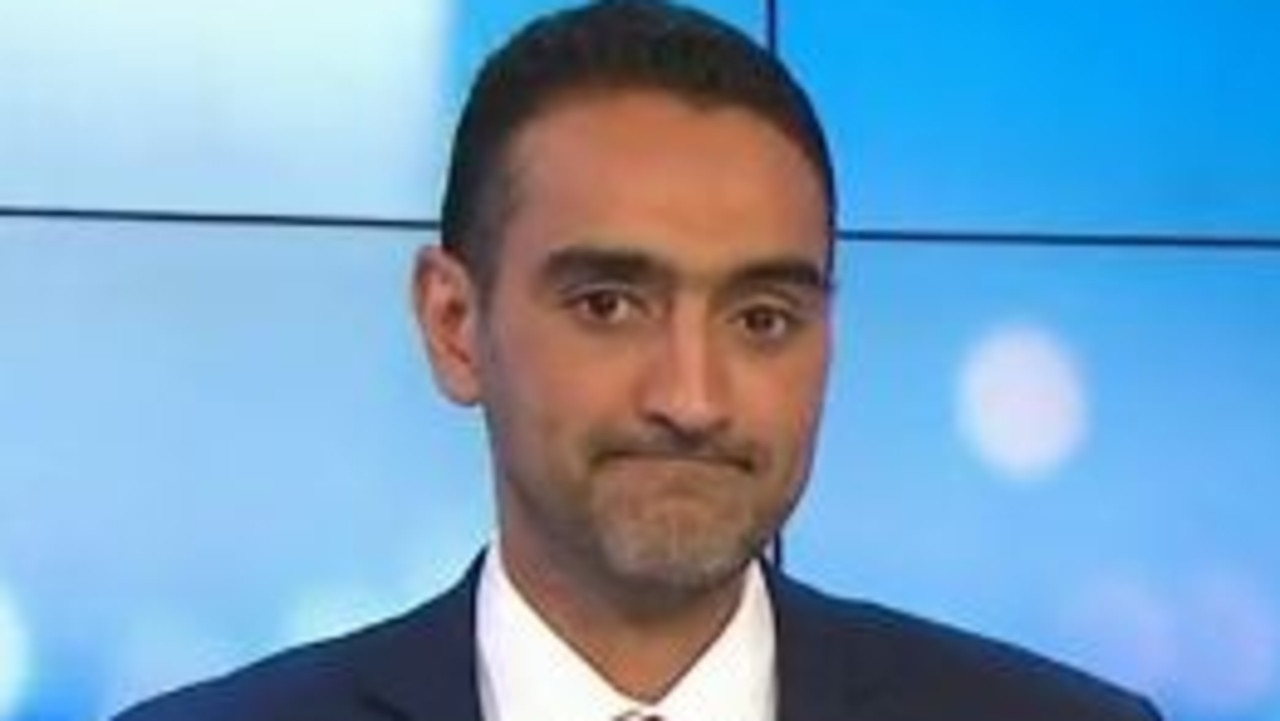Waleed Aly has revealed what he believes is the “biggest mistake” Voice supporters have made in selling the proposal to the Australian public.
With opinion polls suggesting the Indigenous Voice to Parliament is on track for defeat ahead of the October 14 referendum, The Project co-host claims that the Voice’s “biggest mistake is selling itself as an antidote to history, not the future”.
Writing in The Sydney Morning Herald on Friday, Aly argued that at this point in the campaign, debate on the actual merits of a constitutional advisory body had “given way to a contest over grander narratives of national history and identity”.
The academic suggested there were three broad camps — the No voters who wanted to move on from or escape the country’s history, the Yes voters who wanted to feel better about it, and the No voters — like Senator Lidia Thorpe — who reject the legitimacy of the “settler state” altogether.
Aly argued that the danger in pitching the Voice as a “grand historic moment”, rather than simply a “pragmatic” solution to closing the gap in living standards between Indigenous and non-Indigenous Australians, was that “you’re asking people to see it as something deeper — a kind of ritual of national absolution”.
“That risks limiting its appeal to those who regard colonisation as more than history, but as a stain on the nation’s soul,” he said.
In that context, the second group “vote Yes because they want to acknowledge the darker aspects of Australian history, but ultimately integrate them into the national story”.
“It proceeds from a sense of national guilt, but one that sits alongside a patriotism of sorts,” he said.
“The aim is therefore reconciliation, so a less guilty version of the settler state can emerge. The Voice helps erode the tension between white guilt and patriotism, while leaving things broadly intact. This is the way educated people — mostly but not exclusively white — tend to think. Hence, we’re seeing the Yes vote being slowly reduced to that cohort.”
The Voice was initially an attractive idea to most people because it chose “reconciliation over antagonism”, but “to preserve that goodwill through a referendum campaign was always a heavy burden for the Voice to carry”.
“To make the Voice an answer to both the past and the present is to add the full burden of history as well,” Aly said. “And that, I fear, is too much for it to bear.”
Last month, hours after the date of the referendum was finally revealed, Aly was caught in a tense exchange with Labor Senator Penny Wong during an interview on The Project.
Aly pointed out a common fear among potential No voters that a successful Yes vote could open the door to fresh demands, such as reparations or a treaty, and asked whether the Voice could be the “first step” towards such an outcome.
But the question was bluntly shut down by a clearly frustrated Senator Wong.
“No, of course it is not. You know that Waleed, and I appreciate you have to put that to me,” she said.
“But those who have been around in politics for a while might remember the apology debate, the apology was opposed by Peter Dutton and John Howard and many in the Coalition at the time and on that basis, on the basis of some of the misinformation or the things that you’ve just put to me.”
It comes after a leading pollster argued the Yes campaign had made three crucial mistakes in the lead-up to the referendum.
Nationally, the polling average for Yes has fallen below 45 per cent, and pollsters say if support for the referendum continues to decline at the rate it’s going, come October 14 the Voice on track for a worse result than in the 1999 republic referendum.
Kos Samaras, director at influential polling firm Redbridge, old 4BC’s Ned Green this week that the Yes campaign should have been running an “information campaign” for the first six months of the year to better explain how the advisory body would work.
Mr Samaras said the lack of detail played into the No campaign slogan, “If you don’t know, vote No.”
Advertising too late was the Yes campaign‘s second big mistake, he said, arguing the new ad featuring a young Indigenous boy was too little, too late.
“The people running these campaigns probably don’t realise you have to start early, particularly when you are dealing with an issue that could be potentially divisive,” he said.
Thirdly, Mr Samaras said “grand final season” was the worst time to play “catch up politics”. “The cost of ads during grand final season is incredibly expensive,” he said.
Most Australians, he argued, have not engaged with the Voice, with cost of living instead top of mind.
frank.chung@news.com.au
— with Carla Mascarenhas

